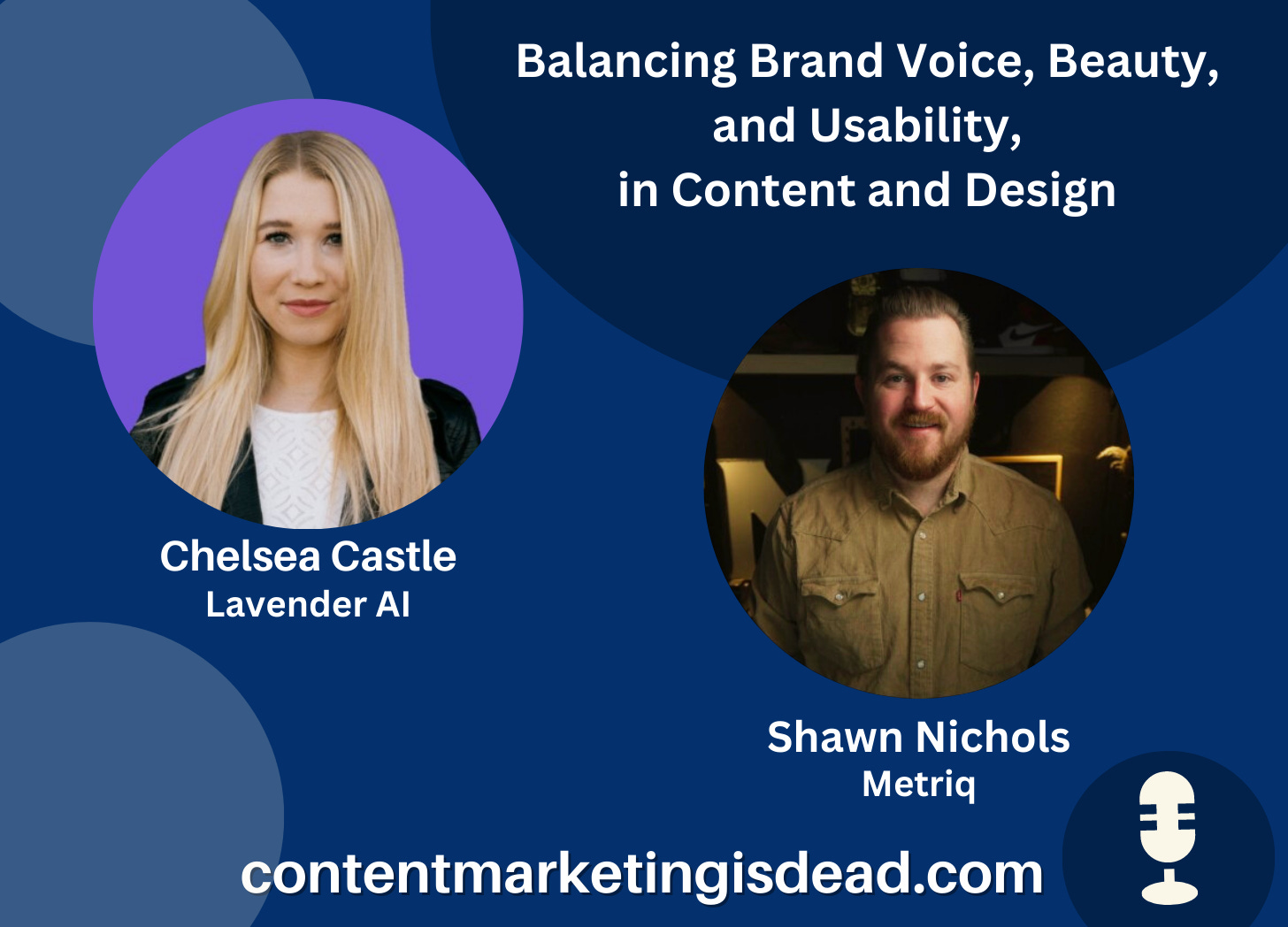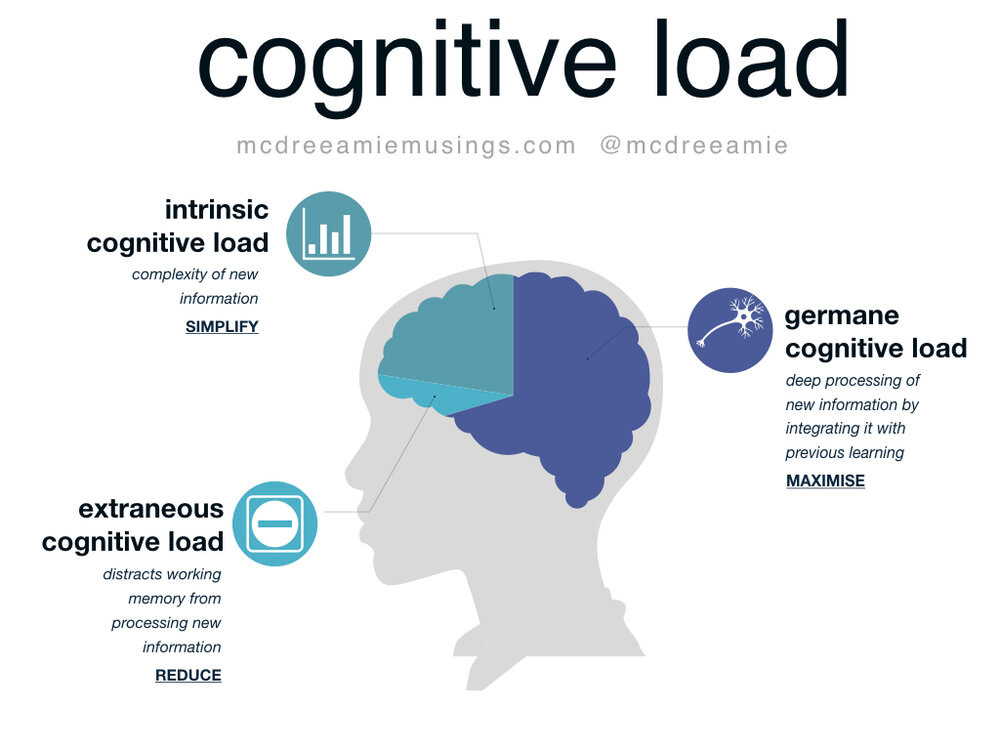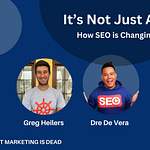One of the most difficult challenges in content marketing is finding that sweet spot where you’re talking on your ICP’s level. You’re neither over-explaining concepts they find too basic nor going over their heads.
But that’s just the beginning.
Not only should content speak to your target audience on their level, it also needs to offer insights that stick with them.
And this is no small task.
Recently I spoke to Shawn Nichols, Founder of Metriq, a UX design firm, and Chelsea Castle, the head of content for Lavender AI. The theme of the conversation was balancing brand voice and usability in content and design.
Listen for insights into the psychology of the site visitor, how a designer sees the relationship between design and content, and a multifaceted approach to content usability.
One of the themes that kept coming up was whether content marketers should “dumb down” content for their consumers.
Short answer: it depends on what you mean by dumb down.
Simple and Clear Doesn’t Mean Shallow or Primitive
The folks at Lavender are constantly analyzing platform data to see which emails were the most effective and engaging. What they found is that marketers should be writing on a third to seventh-grade reading level (the exact level depends on the data set, because it fluctuates).
“And that's not to say that you should be writing as if they're a 10-year-old or dumbing it down,” Chelsea clarified. “As humans especially when we are writing online, we're trying to make ourself present a certain way or diving too deeply into a brand voice. Like sounding boastful or using big words. But you don't need to use big words to sound smart, and it's actually harder to write simply or to explain complex things in simple words.”
Key Takeaway: Don’t shy away from complex topics, figure out how to write or speak about them as simply as possible.
You don't need to use big words to sound smart, and it's actually harder to write simply or to explain complex things in simple words.
Chelsea Castle
Be Aware Of How Much Effort It Takes a User to Comprehend Your Content
Here’s Shawn with some of the psychology behind this same idea:
“I advocate for what used to be called ‘dumbing it down.’ Now, to me, it just resonates as being more usable. I want to ‘dumb down’ whatever I'm producing so that way I can take as little of your bandwidth as possible.”
Shawn brought up cognitive load, which is the amount of working memory it takes a brain to process information. He explained that humans tend to approach their cognitive loads with a sense of scarcity. There’s only so much new information you can process in a day before you’re exhausted or lose focus.
“So if you can make it easier for your user to not have to surmise or paraphrase your content or copy or engagement or conversation, it goes a long way,” Shawn said. “We do the same thing in UX. It's pretty much the entire premise of UX.”
Key Takeaway: Users will remember and appreciate things they don’t have to work too hard to understand.
Other Things to Consider
Do you create content for a global audience? A brand voice that relies heavily on idioms or cultural references can alienate consumers.
Do you write for a large audience with different levels of understanding of a topic? Content needs to be clear about who it’s for, and you should make it easy to navigate to content on their level.
Multimedia content can help with clarity and cognitive load. Allow people to consume ideas the way that’s easiest for them.
That’s all for now!
Next up: Best practices when creating case studies and how to market to local businesses.
Resources Mentioned in the Episode
Zag: The Number One Strategy of High Performance Brands by Marty Neumeier
The Design of Everyday Things by Don Norman
UX Design Field Book by Doug Collins
Laws of UX by Jon Yablonski
Organizational psychologist Adam Grant’s Rethinking podcast
Nudge by Richard Thaler
Katelyn Bourgoin — Person to follow















